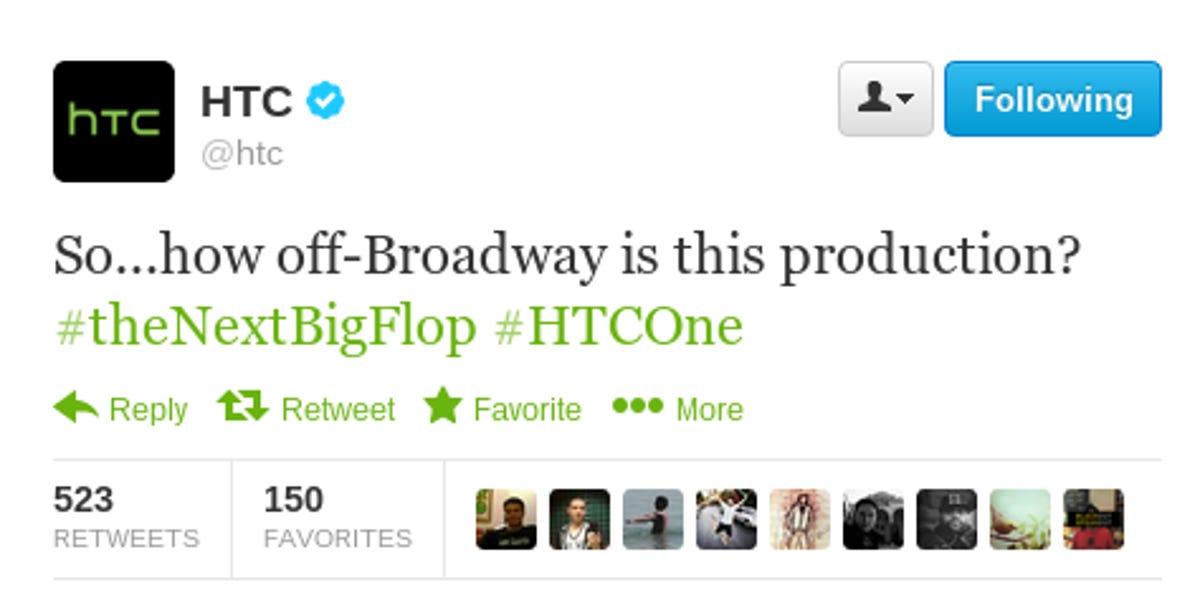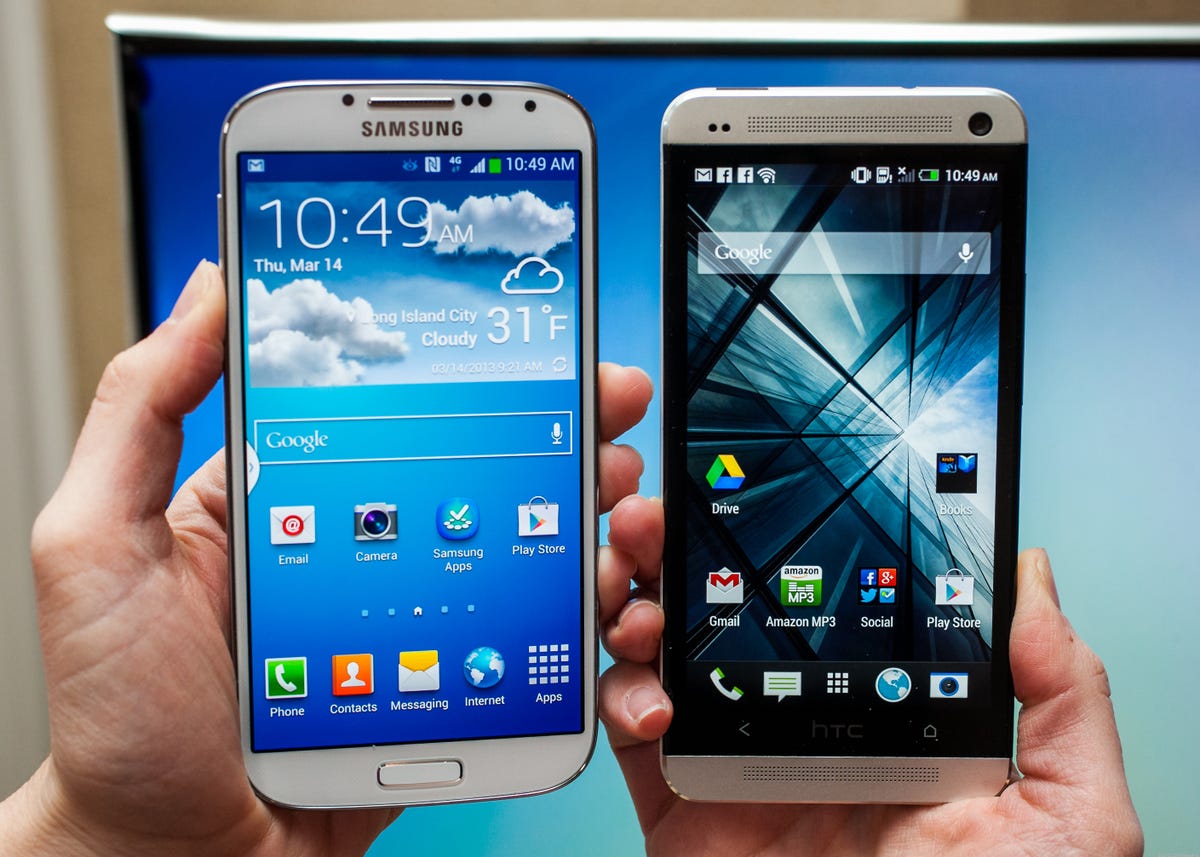

Now playing:
Watch this:
Introducing Samsung’s Galaxy S4
3:02
After months of rumors and speculation, and one rather awkward press event, the Samsung Galaxy S4 is now an official smartphone. Indeed, we still have a month or more before it actually arrives, but Samsung has again changed the game for Android.
Or has it? What does the Samsung Galaxy S4 mean for other Android players and how should they react in the wake of the big reveal? As I see it, there are three important lessons to be learned from Samsung and the Galaxy S4.
Meet the stunning Samsung Galaxy S4 (pictures)






Go big or go home
Watching last night’s press event unfold, I came away with one big takeaway: Samsung will do whatever it can to get people chatting about its smartphones. Sure, I’m certainly not the only one who found the presentation of the Galaxy S4 to be cheesy, goofy, and even painful. But you know what? Everybody is talking about the phone today, right?
When we actually get the S4 in stores, I doubt that few people will even remember the stilted shenanigans. Yet, you can’t deny that yesterday Samsung got your attention, for better or for worse. Other Android handset makers could learn a thing or two here. No, you don’t have to take over Radio City Music Hall to introduce your phone. All you have to do, rather, is come up with a way of getting in front of people. Admittedly, Samsung’s event may have not been quite the way to do that, but Samsung knows how to get its devices broad media and public exposure. And it has more than enough cash to keep doing so.
The Galaxy S4’s software up close






I recently wrote an open letter to HTC advising the company on various ways of mounting the big comeback. One of the moves I suggested was to spend money in order to make money. It’s harder to do this when you’re starting from behind, but it’s not an insurmountable task. The HTC One has yet to come out, but I’ve seen HTC become more active on social media to tout the phone. During yesterday’s show, for instance, the company’s Twitter account let the snark flow. If the trend continues after release, I expect to see television and other forms of advertisement beyond those used for the HTC One X.
LG, for its part, recently took to Times Square to have a bit of fun with Samsung’s Galaxy S4 launch. While this might not be as expensive as mounting a full advertising blitz, it certainly wasn’t cheap to procure the billboard. And, even while the Galaxy series is offered across more carriers, I applaud LG for plugging the Optimus G Pro.

HTC (Twitter)
Throw rocks at the giant
Samsung might be running away with the largest slice of the Android pie, but that doesn’t mean the other vendors ought to lie in the road. Every bit of market share is valuable and is worth fighting for. After spending the last couple of years mocking Apple and its mobile fan base, Samsung has become an industry giant. Now is the time for other Android players to start taking shots at Samsung. Be it in the form of a billboard or bashing on Twitter, every move counts. If it’s done right, you will gather some strong momentum.
Related stories
- Samsung Galaxy S4: Hands-on first take (with video)
- Hands-on photos: Samsung Galaxy S4
- The Galaxy S4’s software up close (pictures)
- Samsung Galaxy S4 vs. iPhone 5, HTC One, and BlackBerry Z10
- Comparing the Samsung Galaxy S4 and the Galaxy S3
- Full coverage: Samsung Galaxy S4 launch
If I were involved in the advertising arm of an Android smartphone maker, I’d gather up all the praise and kudos and make sure the average consumer sees it. The HTC One, LG Optimus G Pro, and Sony Xperia Z have received high marks, but how does a typical buyer understand the difference? Put together some print or television campaigns and let everyone know about your premium design and how it feels next to Samsung’s plastic body. Find what sets you apart from the crowd, or specifically Samsung, and thump your chest.
Create experiences that matter
When it comes to finding features that separate a device from the rest of the pack, it’s somewhat of an uphill battle. Samsung, somehow, seems to be one generation ahead of the other Android smartphone makers. We’re not talking about the actual hardware, mind you. Samsung, rather, has been incredibly efficient about adding in new software features to the Galaxy experience.
The unveiling of the Samsung Galaxy S4 was almost entirely focused on selling its real-world features. Samsung demonstrated countless ways that the Galaxy S4 could enhance your life or make things easier. Call it featuritis, but it’s the little stuff that makes your phone different from the rest. While there were times that Samsung mentioned the specs in the announcement, they took a backseat to the user experience.


Sarah Tew/CNET
The first few generations of Android devices were almost entirely geared around being the first to offer a particular hardware feature. Think back a couple of years and you’ll recall all of the headlines about dual-core this or world’s thinnest that. And what was Apple doing all this time? Showing off how the next generation of iPhone would benefit the user. Samsung realized this earlier than most and has been adding standout features in the last few Galaxy S models. This is not to say that other players have not done the same; HTC has also done well on the camera front, for example.
It’s getting increasingly harder to come up with innovative technologies, a problem that’s compounded when your once-exclusive features end up as a standard part of Android. With that in mind, it’s going to take more than a refreshed version of a custom skin to sway buyers. Samsung’s TouchWiz UI has evolved since the Galaxy S3, but still manages to feel both new and familiar. Where the device will really stand out is in features like Smart Scroll, Smart Pause, S Voice Drive, and Air View.


Sarah Tew/CNET
LG recently introduced eye-based video controls for the LG Optimus G Pro and future devices. My advice to LG and anyone else looking to incorporate this feature is to heavily promote it and take that one nifty detail away from Samsung. Again, this is easier said than done. On the other hand, Apple is not above running a commercial in 2013 for a feature (two microphones) that has been in Android devices (Nexus One) since 2010. The real trick comes in finding the right way to sell it. Even if your handset isn’t all that different from the rest, focus on the features that nobody else is talking about.
Indeed, all of these observations and bits of advice could be summed up in one word: copy. Samsung aped Apple over the last few years and has since been able to jump out in the front of the smartphone pack. The more a company copies Samsung’s overarching moves, the better its chances of success. Personally, I am all for the competition and would welcome a battle for top Android vendor. I’m seeing signs from a number of players who appear ready for the fight and look forward to concerted efforts from all involved.



